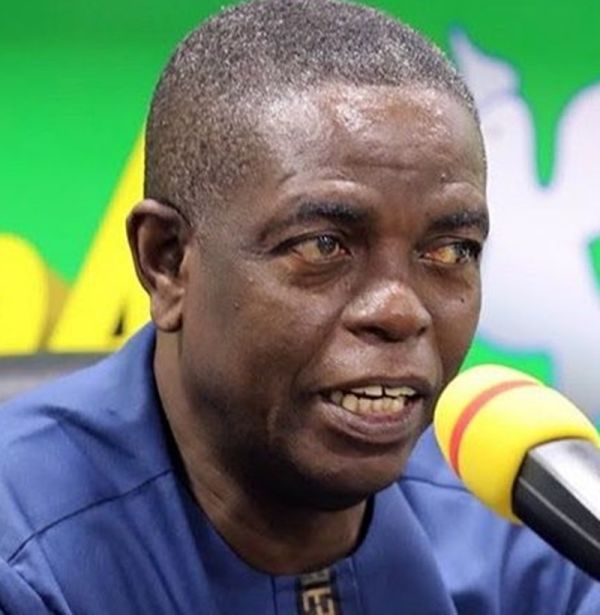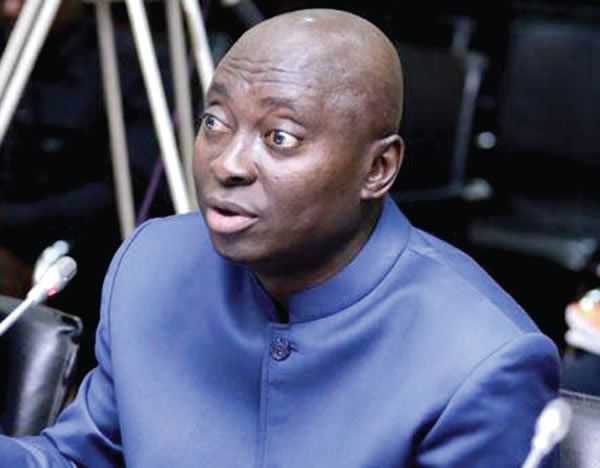
The Speaker of Parliament, Alban Sumana Kingsford Bagbin, pulled a surprise on the Supreme Court yesterday when he informed the court about the existence of a financial impact analysis on the Human and Sexual Rights and Family Values Bill, popularly known as the Anti-Gay Bill.
The issue came up during the hearing of two applications seeking to restrain the Speaker from transmitting the bill to the President for his assent until the final determination of the substantive suits challenging its constitutionality.
Counsel for the Speaker, Thaddeus Sory, told the apex court that he had just received new information that his client indeed gave an opinion on the impact of the bill on the public purse and also caused a fiscal impact analysis to be conducted on the bill, pursuant to Article 108 of the 1992 Constitution and the Public Financial Management Act, 2016 (Act 921).
Mr Sory, therefore, urged the court to allow him to file the new information as part of the defence by the Speaker. “New information came to me after the court took a break. The Speaker’s actual opinion has been found, as well as the fiscal impact analysis.
I will crave the court’s indulgence to allow me to file this new information by tomorrow,” counsel said.
Opposition
However, Mr Sory’s request was vehemently opposed by the Attorney-General (A-G), Godfred Yeboah Dame, who described the move by the Speaker of Parliament to introduce the new information as an ‘unfair surprise’.
Mr Dame contended that the Speaker of Parliament never alluded to the fact that he gave an opinion on the bill or caused a financial impact analysis to be conducted on the bill when it was laid before Parliament two years ago.
Again, the principal legal advisor to the government submitted that at all material times throughout the proceedings, the Speaker never made mention of the fiscal impact analysis or his opinion.
“The process by which the Speaker of Parliament is seeking to adduce this evidence is very much unfair. Where has the evidence been all along? He has kept it to his bosom for two years when the bill was first introduced to Parliament. He now springs this as a surprise on all of us,” the A-G argued.
The Chief Justice, Justice Gertrude Torkornoo, who presided over a five-member panel of the court, was also not enthused about the timing for the introduction of the fiscal impact analysis and the opinion of the Speaker on the bill in the suits.
“I think you have to accept that this is very unfair. This case has been pending since last year but you failed to introduce this information. Does it mean that researchers at Parliament are not that diligent?” the Chief Justice asked.
Justice Torkornoo then directed counsel to file the new information in the substantive suits and not in the application for interlocutory injunction.
The issue of whether or not the Speaker of Parliament gave an opinion on the financial impact the bill would have on the consolidated fund, as well as causing a fiscal impact analysis to be conducted on the bill, are at the heart of the suits challenging the constitutionality of the Anti-Gay Bill at the Supreme Court.
Article 108 of the 1992 Constitution stipulates that any bill before Parliament which would have an impact on the consolidated fund should be introduced by or on behalf of the President.
It further stipulates that in the event a bill is introduced by any entity other than the President or on behalf of the President, the person presiding in Parliament must give an opinion on whether the bill would have an impact on the consolidated fund before it is laid before Parliament.
Again, the Public Financial Management Act , 2016 (Act 921) stipulates that before considering any bill, Parliament ought to ascertain the impact it will have on the nation’s purse by conducting a fiscal impact assessment on the bill.
It is the contention of the two plaintiffs who have filed different suits at the Supreme Court, Richard Sky and Dr Amanda Odoi, that the Anti-Gay Bill was a private member’s bill which failed to follow the dictates of Article 108 of the 1992 Constitution and Act 921.
The plaintiffs said the bill would put a charge on the consolidated fund because under the bill, persons convicted of homosexuality could be jailed, which could impose costs on the state.
In view of that, they averred that the Speaker of Parliament breached Article 108 of the 1992 Constitution by not giving an opinion on whether the bill, when implemented, could lead to financial consequences on the country through a charge on the consolidated fund.
Injunction application
Meanwhile, the Supreme Court will, on July 17, 2024, give a ruling on the two applications seeking to restrain the Speaker of Parliament from transmitting the bill to the President for his assent, until the final determination of the suits challenging the constitutionality of the bill.
During the hearing of the application for interlocutory injunctions, counsels for Mr Sky and Dr Odoi argued that the Speaker of Parliament acted unconstitutionally by allowing the bill to be laid before Parliament.
Counsel for Dr Odoi, Dr Ernest Ako, argued that there was no evidence that the Speaker gave an opinion on the financial impact of the bill. Again, he contended that what the Speaker actually described as a fiscal impact analysis of the bill was rather a portion of the Public Financial Management Regulation, LI 2378.
He, therefore, urged the court to stop the Speaker of Parliament from continuous violation of the Constitution by restraining him and Parliament itself from transmitting the bill to the President, pending the determination of the suit.
Mr Sory opposed the application on the grounds that it was the same argument the applicant made in a previous application which was dismissed by the court. It was during the hearing of the second injunction application by Mr Sky that Mr Sory informed the court about the new information made available to him, which, he said, showed that the Speaker of Parliament actually gave an opinion on the bill and also caused a fiscal impact analysis to be conducted on the bill.
Anti-Gay Bill
On February 28, this year, Parliament passed the Human and Sexual Rights and Family Values Bill, which was a bi-partisan private member’s bill. If assented to by the President, the bill, which enjoyed overwhelming support from members of the House, will impose three years’ minimum jail term and five years’ maximum incarceration on those who engage in and promote homosexual activities in the country.
It has, thus, criminalised and prohibited pro-gay advocacy, as well as those who fund the activities of lesbian, gay, bisexual, transgender, intersex, queer/questioning, asexual, among other such people.
The passage of the bill has since generated diverse reactions, with its opponents describing it as a drawback of the human rights status of the country, while its proponents insist it was necessary to guard against the normalisation of homosexual activities.
President Nana Addo Dankwa Akufo-Addo has indicated that he would only act on the bill after the Supreme Court had determined the suits challenging its constitutionality.









